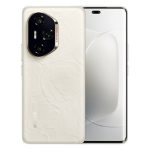- Facebook is working on smartglasses that CEO Mark Zuckerberg says will launch in 2021.
- In the meantime, the social media giant is deploying employees and contractors into public spaces equipped with smartglasses that map the world by capturing photos.
- The initiative is known as “Project Aria.”
- The research is intended to inform best practices for the future, including getting ahead of potential privacy concerns, Facebook said. In practice, the project will capture a lot of photos of public spaces.
- Visit Business Insider’s homepage for more stories.
Facebook is years deep into a project that aims to replace smartphones with augmented reality glasses.
Its first step toward that goal, CEO Mark Zuckerberg said in a broadcast on Wednesday, is creating a set of smartglasses — standard eyeglasses, but with “smart” functionality like cameras and wireless internet connectivity.
Those glasses are expected next year as part of a partnership with Luxottica Group, the parent company of several major glasses brands, like Ray-Ban, Oakley, Sunglass Hut, and LensCrafters.
But before these smartglasses launch, Facebook is sending employees into the wild with their own sets of research glasses equipped with an array of cameras — similar to the mapping car Google might use for Google Street View, but with human beings. Participants in the initiative, known as “Project Aria,” will be deployed on Facebook campuses and into public spaces where their glasses will capture the world around them.
“Like a mapping car, all participants will be easily identifiable by their clothing,” Facebook Reality Labs head Andrew Bosworth said on Wednesday.
One example participant, seen above, has Facebook Reality Labs Research written on his shirt, and his camera-enabled glasses say “Research” in large white letters.
Here’s a closer look at the glasses themselves:
Participants are said to receive training ahead of deployment, and are advised against entering public bathrooms or prayer spaces while wearing the glasses.
They goal is to map the environment “in real-world conditions, indoors and outdoors” as a means of determining best practices for a potential future where smartglasses and, eventually, augmented reality glasses are common.
Critically, Bosworth said that all data collected by Project Aria participants will be “quarantined” before it’s used for research by Facebook. Faces and license plates collected will be blurred, he said.
You can watch the full introduction video to Project Aria right here:
Got a tip? Contact Business Insider senior correspondent Ben Gilbert via email (bgilbert@businessinsider.com), or Twitter DM (@realbengilbert). We can keep sources anonymous. Use a non-work device to reach out. PR pitches by email only, please.
Powered by WPeMatico






